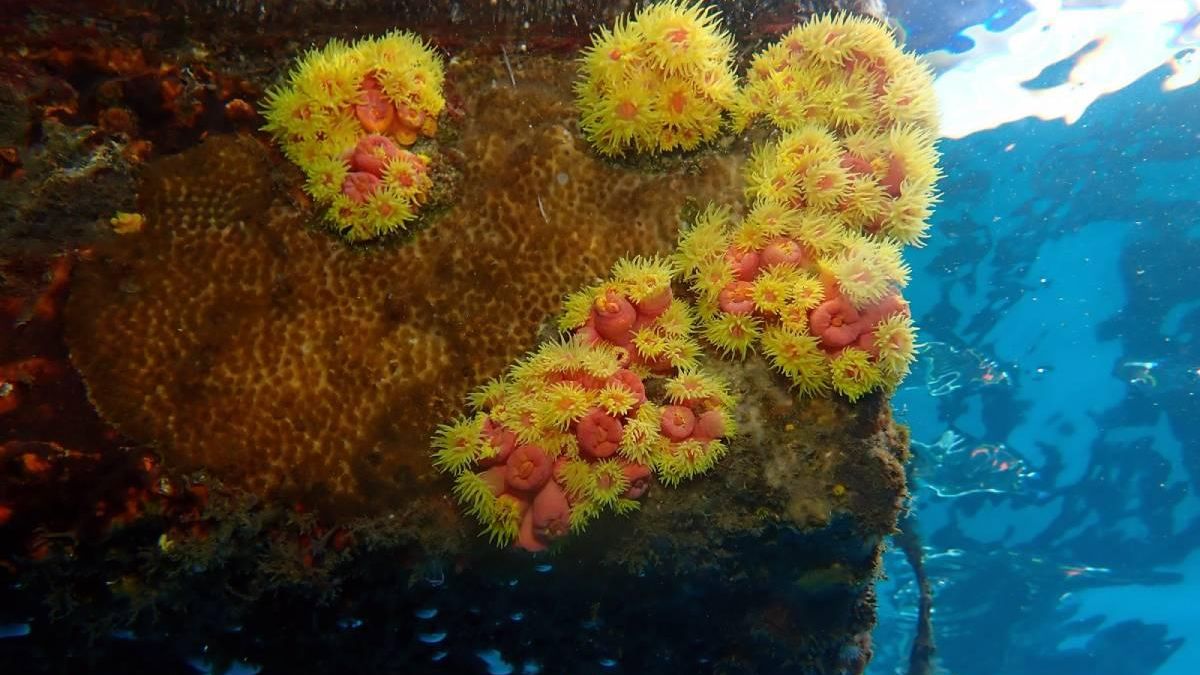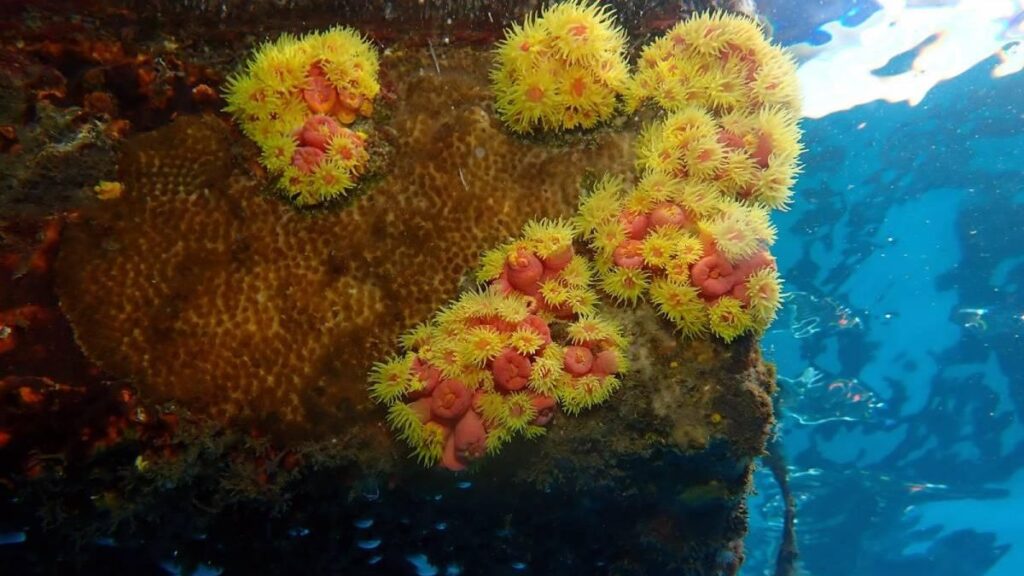Invasive Pacific Coral Poses Threat to Canary Islands’ Marine Life
A new study from the BIOECOMAC research group (Biodiversity, Marine Ecology and Conservation) at the University of La Laguna (ULL) has issued a warning about the risk of expansion in Canarian waters of a coral species native to the Pacific with high invasive potential. The coral in question, Tubastraea coccinea, has recently been detected in the ports of Tenerife and Gran Canaria. Its spread across the archipelago would pose a serious risk to the islands’ unique ecosystems, which are renowned for their isolation, high levels of endemism, and low resilience to change.
Studying a Coral’s Response to a Changing Ocean
The study, published in the journal Marine Environmental Research, was led by Assistant Professor Dr. Adriana Rodríguez alongside researchers Martí Vilanova, Hortensia Holgado, and Alejandro Arechavaleta. The team analyzed the ecophysiological response and growth of Tubastraea coccinea under conditions designed to simulate the future ocean, based on projections from the Intergovernmental Panel on Climate Change (IPCC) for the end of the century: higher temperatures (26°C) and ocean acidification (pH 7.50).
Colonies collected in March 2022 from the breakwaters in Santa Cruz de Tenerife were maintained in environmentally controlled laboratory aquariums. They were then exposed to four different scenarios of temperature and acidity for periods of 30 and 80 days. Throughout the experiment, water quality was meticulously monitored, and the coral’s growth, respiration, and calcification rates were evaluated.
Surprising Findings on Temperature and Acidification
The results revealed that ocean acidification negatively impacts the coral, reducing its growth, metabolic activity, and the formation of new polyps. It also led to the development of malformed larvae. Surprisingly, however, the increase in temperature did not have adverse effects; in some cases, it even helped to mitigate the negative impacts of the lower pH levels.
A Formidable Threat to Local Biodiversity
This environmental tolerance, combined with its rapid dispersal and adaptive capacity, makes this coral a formidable threat to local biodiversity. Researchers insist that its expansion could displace other species of invertebrates and algae, as well as native organisms, ultimately altering marine communities and disrupting the delicate equilibrium of the island ecosystems.
The Need for Long-Term Research and Monitoring
The research team highlights the critical need for long-term studies involving multiple generations of corals to better understand their full adaptive capabilities. They also stress the importance of analyzing the coral’s interactions with local species, particularly during the early, more vulnerable stages of their life cycles, which are most susceptible to environmental changes. Continuous monitoring is essential to manage this emerging threat to the Canaries’ precious underwater world.


